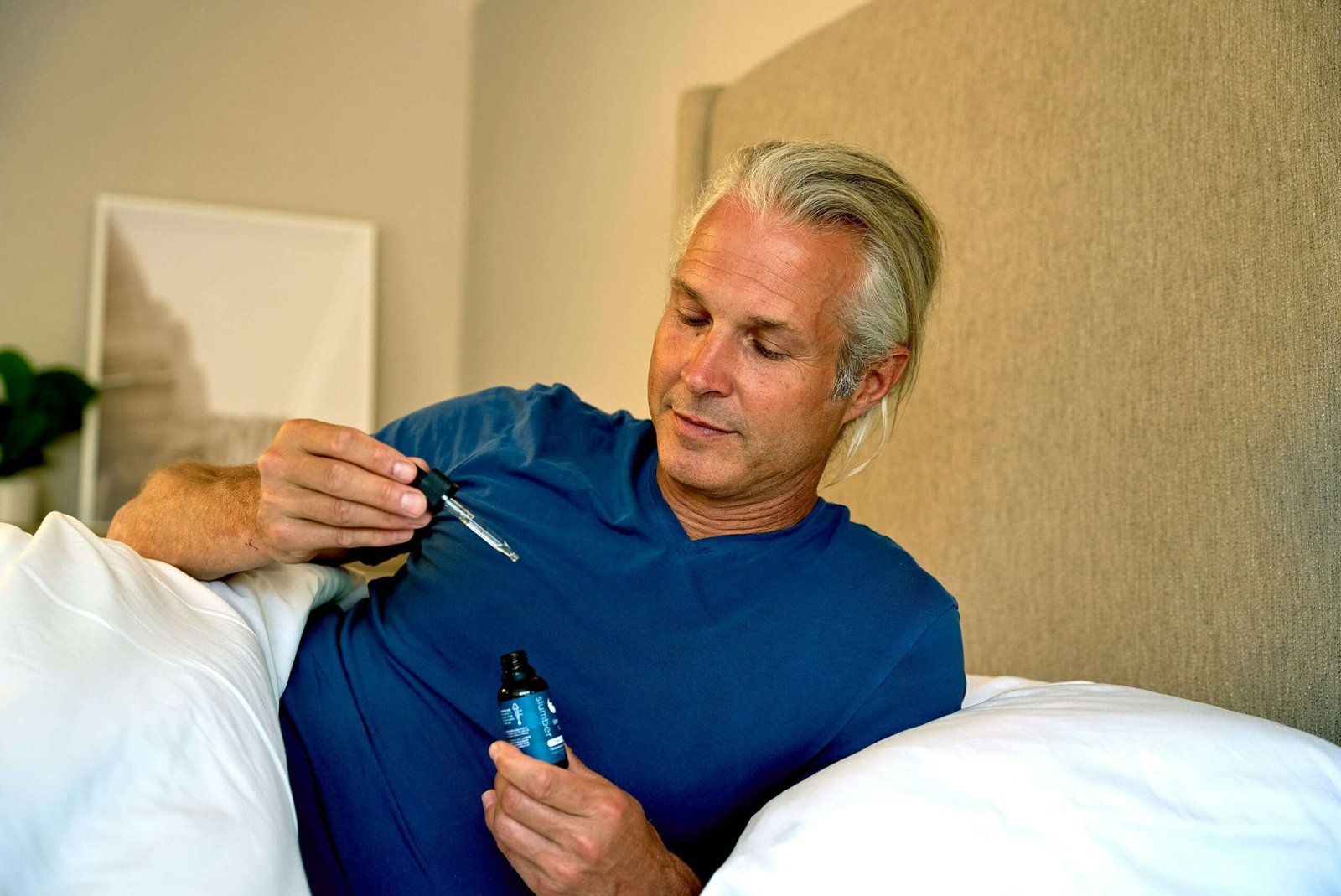Introduction
Insomnia is one of the most common sleep disorders, affecting millions of people across the globe. This condition, characterized by difficulty falling asleep, staying asleep, or waking up too early, can leave you feeling tired and irritable throughout the day. Sleeplessness and sleep disturbances can arise due to various factors, including stress, lifestyle choices, or even an underlying medical condition. While it can feel frustrating, there are effective ways to combat insomnia and improve your sleep quality.
In this guide, we’ll explore 10 effective strategies to help you overcome insomnia, reduce sleep disturbances, and ensure a more restful night.
Table of Contents
1. Stick to a Consistent Sleep Schedule
Having a regular sleep schedule is one of the most effective ways to combat insomnia. This means going to bed and waking up at the same time every day, regardless of weekends or holidays. Consistency strengthens your body’s circadian rhythm—the internal body clock that tells you when to sleep and wake.
If your bedtime is inconsistent, your body won’t know when it’s supposed to sleep, making it harder to fall asleep when you want to.
- How it helps: Sticking to a sleep schedule regulates your circadian rhythm, helping your body naturally feel tired at the appropriate time. This consistency reduces the struggle of falling asleep and helps minimize sleep disturbances throughout the night.
- Why it works: Your circadian rhythm thrives on routine. When your body becomes accustomed to falling asleep and waking up at the same time, your brain knows when to produce melatonin (the sleep hormone) and when to stop, leading to more restful sleep.
- Tip: Set an alarm not only for waking up but also for going to bed. This will help you stay disciplined and ensure you’re getting the right amount of sleep each night.
2. Create a Relaxing Bedtime Routine

A relaxing bedtime routine is a set of activities you do before bed to help calm your mind and body. This could include reading a book, listening to calming music, taking a warm bath, or practicing mindfulness meditation. Such activities help signal to your brain that it’s time to sleep.
Your routine should avoid stimulating activities, like checking emails or watching intense TV shows, as these can keep your mind alert when it should be winding down.
- How it helps: A consistent pre-sleep routine allows you to transition from wakefulness to sleepiness. Over time, your brain associates these activities with sleep, helping you fall asleep faster and more easily.
- Why it works: Stress and overstimulation at night can keep your body in a state of alertness, leading to sleeplessness. A relaxing routine reduces the production of cortisol, the stress hormone, and increases melatonin, which helps you relax and prepare for sleep.
- Tip: Start your bedtime routine about 30-60 minutes before bed, avoiding screen time, as blue light interferes with melatonin production.
3. Optimize Your Sleep Environment
Your bedroom environment plays a significant role in your ability to sleep soundly. Factors like temperature, noise, and light can significantly impact how well you sleep. For instance, if your bedroom is too hot or too bright, it can cause sleep disturbances throughout the night.
Make sure your sleep environment is cool, quiet, and dark. Consider using blackout curtains to block outside light, a white noise machine to drown out background noise, and comfortable bedding to ensure you’re physically relaxed.
- How it helps: A sleep-friendly environment minimizes external stimuli that might wake you up or prevent you from falling asleep. A cooler temperature, for example, mimics the natural drop in body temperature that occurs when you sleep, promoting deeper, more restful sleep.
- Why it works: Your body sleeps best in cool, dark, and quiet environments. Bright lights signal your brain that it’s daytime, while noise and uncomfortable bedding can keep your body alert and wakeful.
- Tip: Keep your bedroom temperature between 60-67°F (15-19°C), as studies suggest this is the ideal range for promoting optimal sleep.
4. Avoid Caffeine and Stimulants in the Evening
Caffeine, found in coffee, tea, chocolate, and certain medications, is a well-known stimulant that can keep you awake long after consumption. It blocks adenosine, a chemical that promotes sleep, and increases adrenaline, which keeps you alert. Similarly, nicotine, found in cigarettes and some vaping products, is another stimulant that can delay sleep onset.
Avoiding these stimulants in the late afternoon and evening can help your body prepare for sleep naturally, without artificial interference.
- How it helps: Reducing or eliminating stimulants in the evening allows your body to naturally wind down and enter a relaxed state. This promotes easier sleep onset and fewer sleep disturbances.
- Why it works: Stimulants like caffeine and nicotine interfere with your brain’s ability to signal sleep. Even if you don’t feel wired, the stimulants can stay in your system for hours, disrupting your sleep later in the night.
- Tip: Aim to cut off caffeine intake at least 6-8 hours before bedtime to ensure it doesn’t interfere with your sleep cycle.
5. Limit Daytime Napping

While naps can provide a much-needed energy boost, they can also disrupt your sleep-wake cycle if taken too late in the day or for too long. Long naps, especially in the late afternoon, can interfere with your ability to fall asleep at night and reduce the quality of your nighttime sleep.
If you feel the need to nap, keep it brief and earlier in the day to avoid sleeplessness at night.
- How it helps: Limiting naps helps build up your sleep drive, the natural pressure your body creates throughout the day to help you fall asleep at night. By reducing long or late naps, you ensure that you’re sleepy enough by bedtime to fall asleep quickly and sleep deeply.
- Why it works: Napping too much during the day decreases your body’s need for sleep at night, leading to insomnia and fragmented sleep. Short naps (20-30 minutes) can refresh you without impacting your sleep drive.
- Tip: Keep naps under 30 minutes and try to nap before 3 PM. This ensures your nap refreshes you without harming your ability to fall asleep later.
6. Watch What You Eat Before Bed
Eating a large, heavy meal before bedtime can cause discomfort, indigestion, or heartburn, making it difficult to fall asleep. On the other hand, going to bed hungry can also cause sleep disturbances. The key is to eat the right foods at the right time.
Some foods, like almonds, bananas, and warm milk, contain natural sleep-inducing compounds like magnesium, melatonin, and tryptophan, which can help you fall asleep more easily.
- How it helps: Avoiding large meals late at night prevents digestive discomfort that can keep you awake. Opting for sleep-promoting snacks helps increase your body’s production of sleep-related hormones, ensuring you fall asleep more easily and stay asleep throughout the night.
- Why it works: Large meals can cause bloating and indigestion, making it hard to fall asleep. Meanwhile, foods rich in melatonin and tryptophan promote better sleep by supporting your body’s natural sleep processes.
- Tip: If you need a snack before bed, opt for something light, such as a handful of almonds, a banana, or a glass of warm milk.
7. Manage Stress and Anxiety

Stress and anxiety are common contributors to insomnia. When you’re stressed, your body produces more cortisol and adrenaline, which keep your body alert. This makes it harder to relax and fall asleep, even if you’re physically tired.
Incorporating relaxation techniques into your bedtime routine can help calm your mind and reduce feelings of anxiety, making it easier to fall asleep. Techniques like meditation, deep breathing, or progressive muscle relaxation can be particularly effective.
- How it helps: Managing stress and anxiety helps reduce overthinking and racing thoughts that prevent sleep. Relaxation techniques encourage your body to shift from the “fight-or-flight” response to the “rest-and-digest” state, promoting calmness and sleep.
- Why it works: Stress triggers a hormonal response that keeps your body in a state of alertness. By actively reducing stress and calming your mind, you help lower these hormones, allowing your body to relax and fall asleep naturally.
- Tip: Dedicate at least 10-15 minutes before bed to stress-reducing activities such as meditation, deep breathing, or gentle stretching.
8. Get Regular Physical Activity
Exercise is one of the most powerful ways to improve sleep quality and combat insomnia. Physical activity helps regulate your circadian rhythm and increases sleep pressure, making you more tired at night. It also reduces stress, anxiety, and depression, which are common contributors to sleep disturbances.
However, try to avoid vigorous exercise close to bedtime, as it can have a stimulating effect, making it harder to fall asleep.
- How it helps: Regular physical activity increases your body’s natural sleep drive, making you feel sleepier at night. Exercise also reduces stress and improves overall mood, both of which contribute to better sleep.
- Why it works: Exercise helps increase the production of sleep-promoting hormones, like serotonin and melatonin, while also reducing cortisol levels. This balance helps you fall asleep faster and experience deeper, more restorative sleep.
- Tip: Aim to get at least 30 minutes of moderate physical activity, such as walking or cycling, most days of the week. If possible, exercise earlier in the day to avoid stimulating your body before bed.
9. Limit Exposure to Light at Night
Light exposure, especially blue light from phones, tablets, and other electronic devices, can interfere with your sleep by suppressing melatonin production. Melatonin is the hormone that signals your brain it’s time to sleep, and too much light can disrupt its production.
To promote better sleep, limit screen time in the hours leading up to bedtime and create a dark, calming environment for sleep.
- How it helps: Limiting light exposure allows melatonin levels to rise, signaling to your body that it’s time to sleep. This helps you fall asleep faster and reduces sleep disturbances throughout the night.
- Why it works: Artificial light, especially blue light, tricks your brain into thinking it’s still daytime, delaying melatonin production. Reducing exposure to light in the evening helps your body naturally transition into sleep mode.
- Tip: Use blue light filters on your devices or wear blue light-blocking glasses if you must use screens in the evening. Also, dim the lights in your home an hour or two before bed.
10. Seek Professional Help if Necessary

If your insomnia persists despite trying these strategies, it may be time to seek professional help. Chronic insomnia can be linked to underlying medical or psychological conditions, such as anxiety, depression, or sleep apnea.
A healthcare provider can assess your condition and recommend treatments, which may include cognitive behavioral therapy for insomnia (CBT-I), medication, or other interventions.
- How it helps: Seeking professional help allows you to address the root cause of your insomnia. Whether it’s a medical condition or a mental health issue, a healthcare provider can guide you through treatment options that are specifically tailored to your needs.
- Why it works: Professional treatments like CBT-I are highly effective for treating chronic insomnia. These treatments target the underlying thoughts and behaviors contributing to sleeplessness, helping you regain control over your sleep.
- Tip: Don’t hesitate to reach out to a sleep specialist if your sleep problems persist. Early intervention can prevent insomnia from becoming a long-term issue.
Conclusion
Overcoming insomnia and improving your sleep is possible with the right approach. By implementing these 10 strategies, you can create a more sleep-friendly environment, adopt healthier habits, and tackle the root causes of your sleeplessness. Prioritizing your sleep will not only improve your nightly rest but also enhance your overall well-being and quality of life.
Visit or blog page for more.
Visit alphanewsweb.com for up to date and exclusive news stories!





